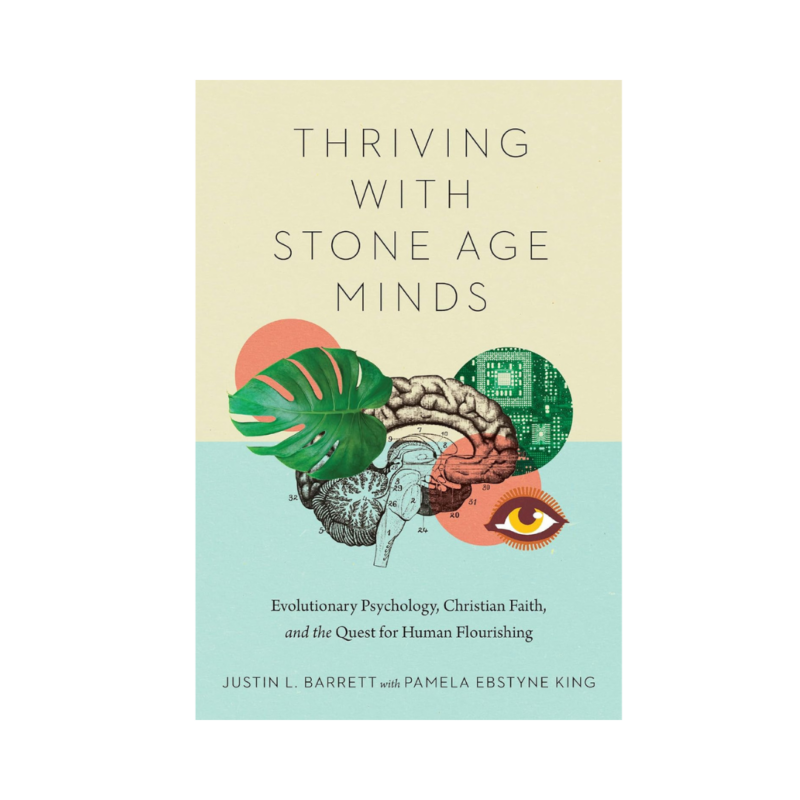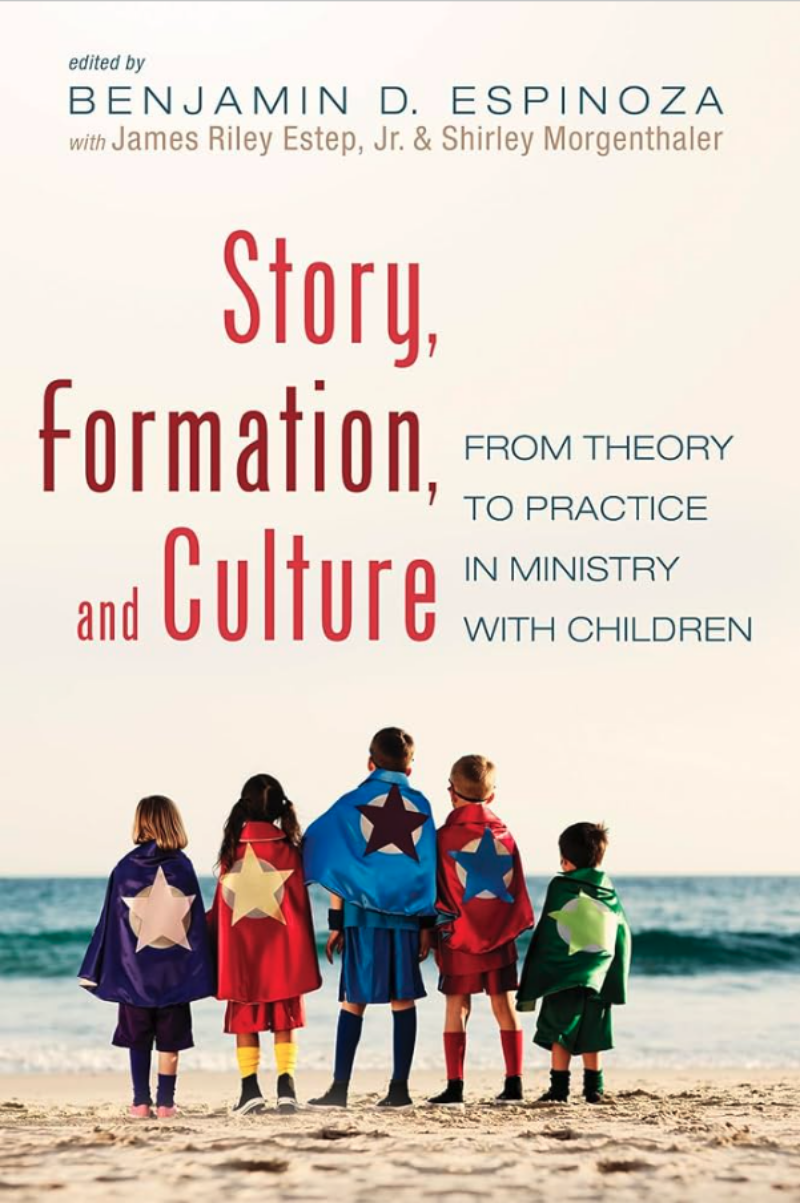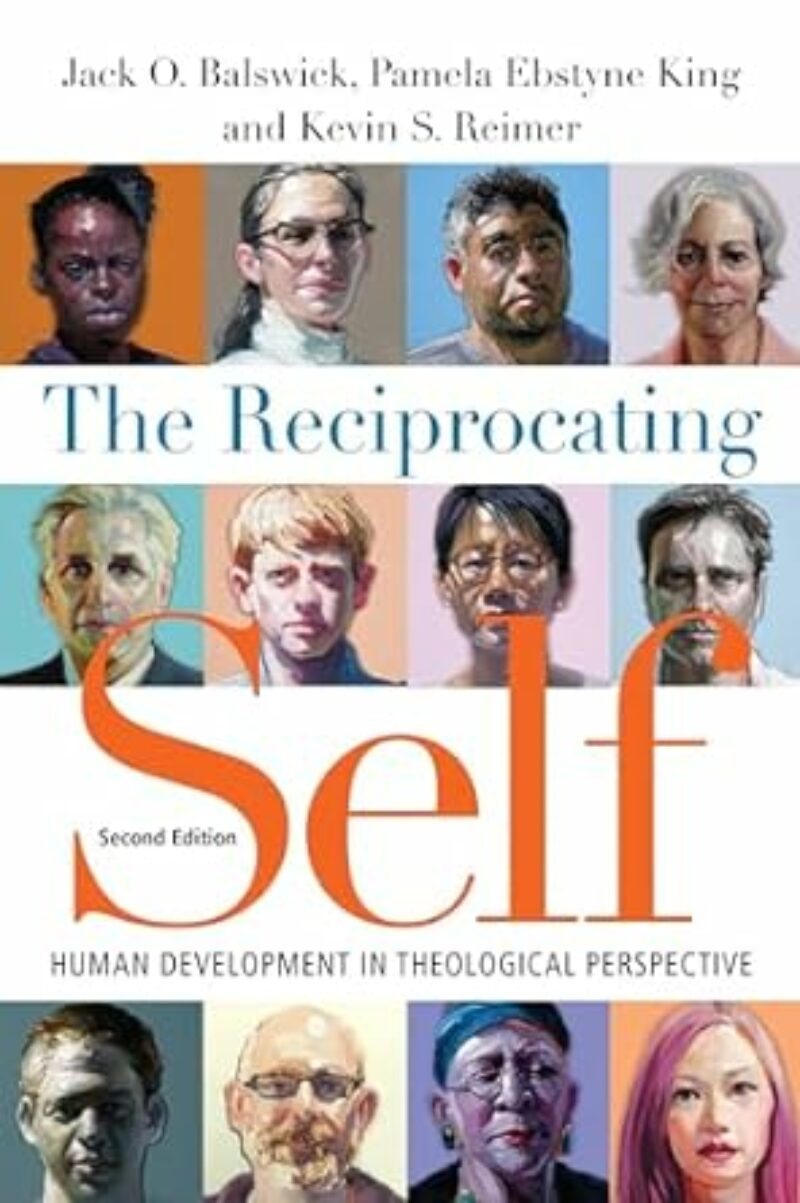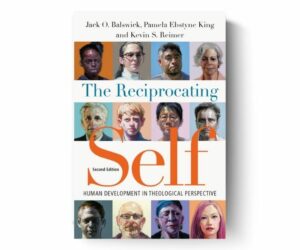Project Dates
September 2020—Present
Thrive Research Team
Principal Investigator: Pamela Ebstyne King
Postdoctoral Research Associate: Rodrigo Riveros Miranda
Project Overview
Given the radical and frantic change throughout society, the Telos Project seeks to convene interdisciplinary scholars and to synthesize existing scholarship to further understand the ends of human development and thriving. Drawing on psychological science, philosophical, and theological perspectives, teleology provides a framework for human thriving pointing to the importance of the development of differentiated individuals in reciprocating relationships with others, and evolving moral and spiritual aspirations that contribute to flourishing society.
Related Publications
In this revised and expanded second edition, Jack Balswick, Pamela Ebstyne King, and Kevin Reimer present a model of human development that ranges across all of life’s stages, based on a theologically grounded understanding of the nature of persons and the self.
Critically engaging social science research and theory, this book offers an integrated approach that provides insight helpful to college and seminary students, as well as those serving in the helping professions.
- King, P. E. (2020). Joy Distinguished: Teleological Perspectives of Joy as a Virtue. Journal of Positive Psychology, 15:1, 33-39. https://doi.org/10.1080/17439760.2019.1685578
- King, P. E., & Defoy, F. (2020). Joy as a virtue: The means and ends of joy. Journal of Psychology and Theology, 48(4), 308-31. https://doi.org/10.1177/0091647120907994
- Schnitker, S. A., King, P. E., & Houltberg, B. (2019). Religion, Spirituality, and Thriving: Transcendent Narrative, Virtue, and Lived Purpose. In Hardy, S. & King, P. E. (eds.). Special section: Processes of religious and spiritual influence in adolescence, Journal of Research on Adolescence, 29(2), 276-290.
- King, P. E. (2016). The reciprocating self: Trinitarian and Christological anthropologies of being and becoming. Journal of Psychology and Christianity, 35(3), 215-232.
Selected Presentations
The role of telos
Dr. Pam King defines telos and explains the important role it plays in youths’ lives this interview with the Yale Youth Ministry Institute.
This interview was published by Yale Youth Ministry Institute.
Practical applications of telos
Dr. Pam King sits down with the Yale Youth Ministry Institute and shares the meaningful ways youth practitioners can help advance a youth’s telos or purpose.
This interview was published by Yale Youth Ministry Institute.
Young people & the church
Continue Exploring

Christian
On Being and Becoming Human Through Accompaniment and Telos
Sage Journals Journal of Psychology and Theology Volume 53, Issue 1, March 2025, pp. 85-107 On Being and Becoming Human Through Accompaniment and Telos: Ontological Convergences Between Christian Anthropology and the Science of Human Development Abstract We discuss several points of convergence in ontological concepts within Christian anthropology and the contemporary dynamic, relational, developmental systems (RDS)-based approach within developmental science. Both approaches uphold the significance of relationality, particularly of mutually beneficial (nurturing) relationships between every individual and others, as both the means and the ends of human development and thriving. Both magisteriums build similarly on the fundamental significance…

Mindfulness
Theological Perspectives on Beliefs and Communities of Practice
Book: The Routledge International Handbook of Multidisciplinary Perspectives on Character Development, Volume I Conceptualizing and Defining Character Chapter 18 (34 pages) Theological Perspectives on Beliefs and Communities of Practice Virtue Systems as an Integrative Approach for Psychologists Abstract In order to offer a theological perspective of virtue development, we treat virtues as habitus, moral habits that are cultivated in local communities with transcendent belief narratives. Virtues are dependent on traditions to inform their purpose or telos and to give definition to the good life. Although psychology offers a conceptualization of virtues focused on the self-system—including characteristic adaptations and…

Thriving
Neurodiversity and Thriving: A Case Study in Theology-Informed Psychology
Citation Leidenhag, J., & King, P. E. (2023). Neurodiversity and Thriving: A Case Study in Theology-Informed Psychology. Studies in Christian Ethics, 36(4), 827–843. https://doi.org/10.1177/09539468231187784 Abstract The concept of ‘neurodiversity’ to speak of conditions such as autism, dyslexia, and others as differences, not disorders or pathologies, relies on a robust account of human flourishing that can incorporate these conditions. Conceptions of illness and well-being are always partially theological, whilst also having to be grounded in the empirical realities of the present time. Therefore, positive developmental psychology is a particularly apt field for developing a theology-informed psychology. This article argues that recent…

Meaning
Religion, Spirituality, and Youth Thriving: Investigating the Roles of the Developing Mind and Meaning-Making
Citation King, P. E., Mangan, S., & Riveros, R. (2023). Religion, Spirituality, and Youth Thriving: Investigating the Roles of the Developing Mind and Meaning-Making. In E. B. Davis, E. L. Worthington, & S. A. Schnitker (Eds.), Handbook of Positive Psychology, Religion, and Spirituality (pp. 263–277). Springer International Publishing. https://doi.org/10.1007/978-3-031-10274-5_17 Abstract In this chapter, we draw on positive developmental psychology, psychology of religion and spirituality, and developmental neuroscience to explore how youth religiousness and spirituality contribute to thriving through the process of meaning-making. Thriving involves the individual, relational, and aspirational development necessary to pursue a life purpose that is meaningful to…

Thriving
Back to the Future: Volf’s Eschatological Vision of Flourishing for a Psychology of Thriving
Citation King, P. E., & Baer, R. A. (2022). Back to the future: Volf’s eschatological vision of flourishing for a psychology of thriving. Journal of Psychology and Theology, 50(1), 38-49. https://doi.org/10.1177/00916471211072312 Abstract In this article, we aim to explain how Miroslav Volf’s theology of flourishing provides a new vision for psychologists. As the Henry B. Wright Professor and Founder and Director of the Yale Center for Faith and Culture, Volf is recognized as one of the most influential living theologians. His recent work offers a theology of human flourishing based in an eschatological vision of God’s homecoming, the unification of…

Christian
The Reciprocating Self: Trinitarian and Christological AnthropologiesR of Being and Becoming (Portugues (Brasil))
Citation King, P. E. (2021). O Sujeitoreciproco: Antropologias Trinitaria e Cristologica do ser e do Vir-A-Ser. (The reciprocating self: Trinitarian and Christological anthropologies of being and becoming.) Journal of Teleological Science, 1(2), 22-61. Abstract This paper summarizes a Christological and trinitarian anthropology in order to propose a developmental teleology that offers a vision for being and becoming human. From a Christological perspective, Jesus Christ is the perfect image of God, and becoming like Christ as distinct persons is God’s intention for all of humanity. How humans are conformed to…

Thriving
Thriving with Stone Age Minds: Evolutionary Psychological and Christian Perspectives on Human Flourishing.
Citation Barrett, J. L. (2021). Thriving with Stone Age Minds: Evolutionary Psychology, Christian Faith, and the Quest for Human Flourishing. InterVarsity Press. About the Author Justin L. Barrett (PhD, Cornell University) is the founder and president of Blueprint 1543 and adjunct professor of psychology at Fuller Theological Seminary, where he was formerly director of the Thrive Center for Human Development and chief project developer in the Office for Science, Theology, and Religion Initiatives. His books include Born Believers and Cognitive Science, Religion, and Theology. Pamela Ebstyne King (PhD, Fuller Theological Seminary) is the executive director of the Thrive Center and the Peter L.…

Joy
Vocation as becoming: Telos, thriving and joy
Citation King, P. E. (2021). Vocation as becoming: Telos, thriving and joy. In Seminary Student Vocation Formation (eds. David J. Downs, Tina Houston-Armstrong, and Amos Yong). Vocation, Formation, and Theological Education: Interdisciplinary Perspectives from Fuller Theological Seminary. Claremont, CA: Claremont Press, p. 185-210. Abstract This volume represents one set of reflections on issues of vocation, formation, and theological education in the first quarter of the twenty-first century. Each of the contributors to the volume is (or was, in one case) a faculty member at Fuller Theological Seminary, an institution that, like many others, has been wrestling seriously with the global…

Christian
Joy as a Virtue: The Means and Ends of Joy
Citation King, P. E., & Defoy, F. (2020). Joy as a virtue: The means and ends of joy. Journal of Psychology and Theology, 48(4), 308-31. Abstract To grasp human flourishing and thriving, we must understand joy. However, no theoretical models explain the complexity of joy as a fruit of the Spirit, nor fully account for its impact on human life. We suggest that joy is best conceptualized as a virtue, a psychological habit, comprised of characteristic adaptations and given meaning by transcendent narrative identity. Thus joy involves knowing, feeling, and enacting what matters most.

Joy
Joy Distinguished: Teleological Perspectives of Joy as a Virtue.
Citation King, P. E. (2020). Joy Distinguished: Teleological Perspectives of Joy as a Virtue. Journal of Positive Psychology, 15(1), 33-39. Abstract The most specific psychological literature associates joy with goodness; however, psychological science has no clear means to distinguish one good thing from another or to decipher the degree of goodness required to designate joy beyond subjective or conventional opinion. In order to provide a framework for a science of joy that identifies both the psychological processes that comprise joy and a means of understanding and operationalizing goodness, I conceptualize joy as a virtue of knowing, feeling, and doing what…

Christian
Kids & God: Nurturing spirituality and the ability to thrive
Citation King, P. E. (2018). Kids & God: Nurturing spirituality and the ability to thrive. In Benjamin D. Espinoza, James Riley Estep & Shirley Morganthaler (Eds.) Story, Formation, and Culture: From Theory to Practice in Ministry with Children. Eugene, OR: Wipf & Stock Press, 296-306. Abstract Story, Formation, and Culture brings together a myriad of scholars, researchers, and ministry leaders into conversation about how we can effectively nurture the spirituality of children. Built around the three themes of story, formation, and culture, this volume blends cutting-edge research and insights with attention to how we can bring theory into practice in…

Spirituality
The reciprocating self: A theological perspective of development
Citation Balswick, J. O., King, P. E., & Reimer, K. S. (2005). The reciprocating self: A theological perspective of development. Downers Grove, IL: InterVarsity Academic Press. Abstract The purpose of “The Reciprocating Self: Human Development in Theological Perspective” is to present an integrated view of human development that is based on social science research and biblical truths. We do this by drawing on a biblical model of relationality, where the created goal or purpose of human development is to become a reciprocating self-fully and securely related to others and to God. The ideas for this book came to us as…

